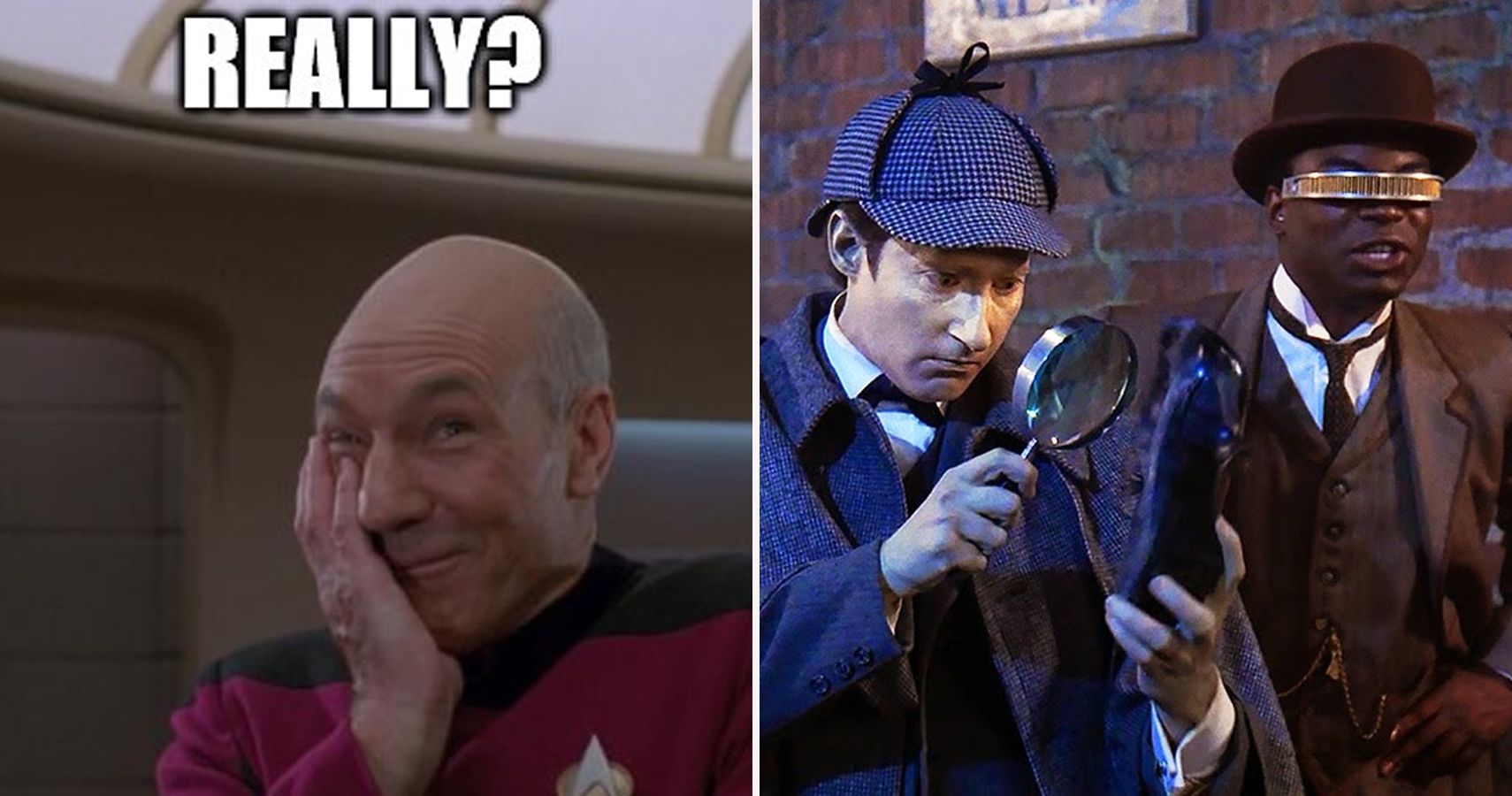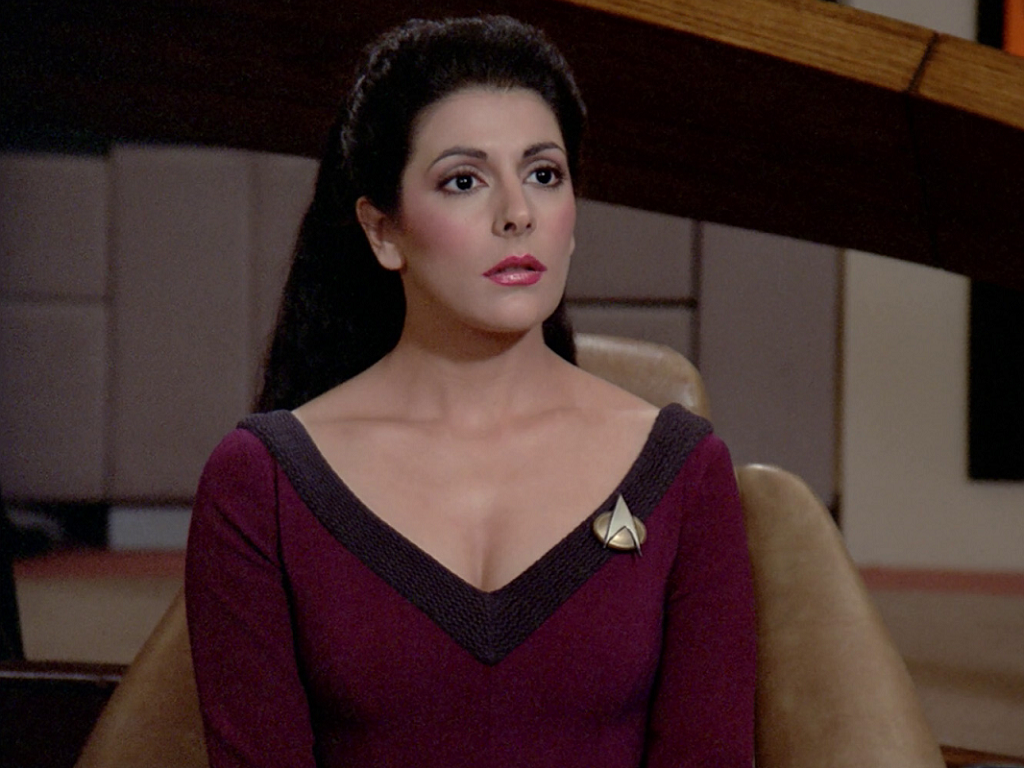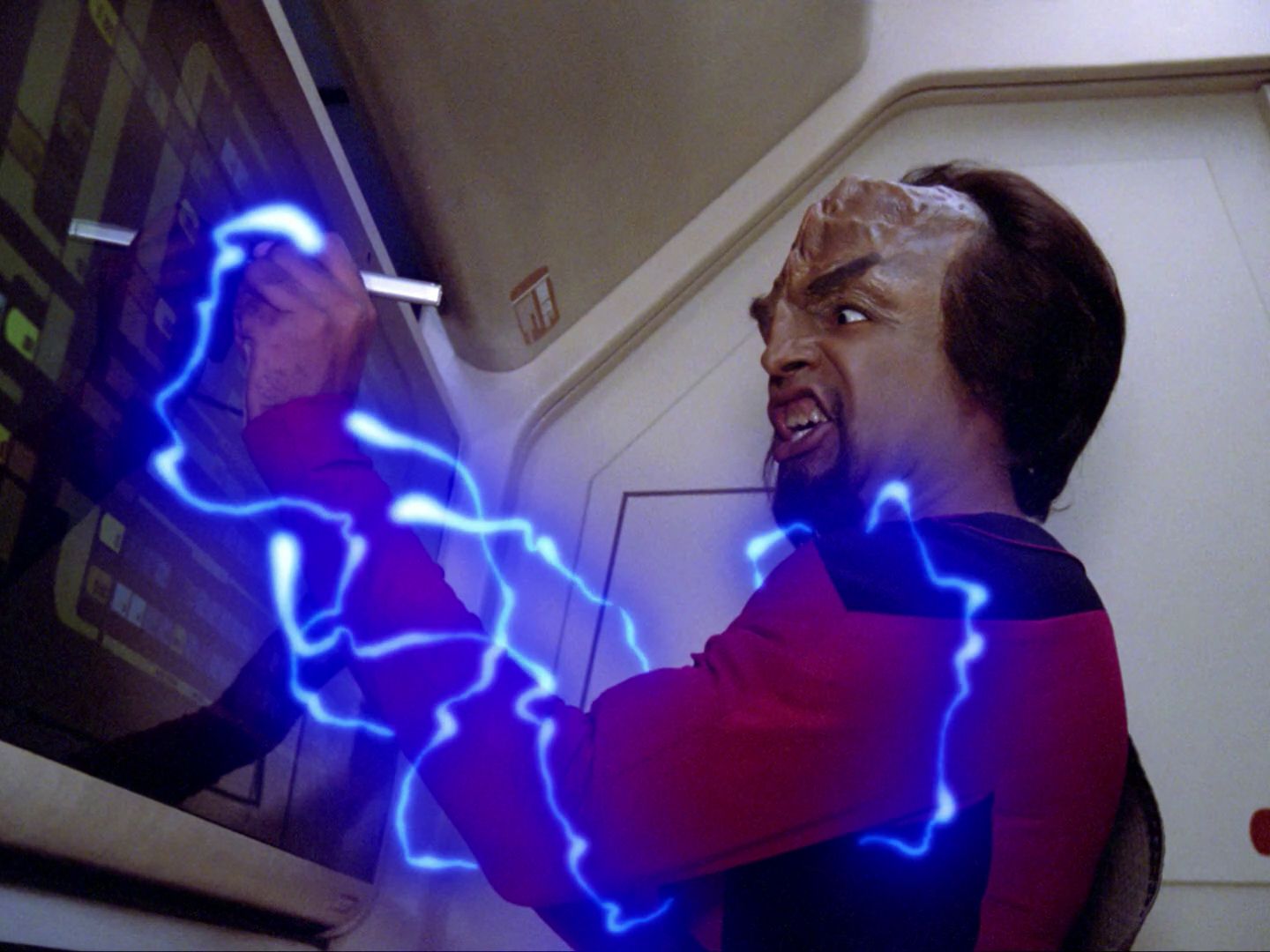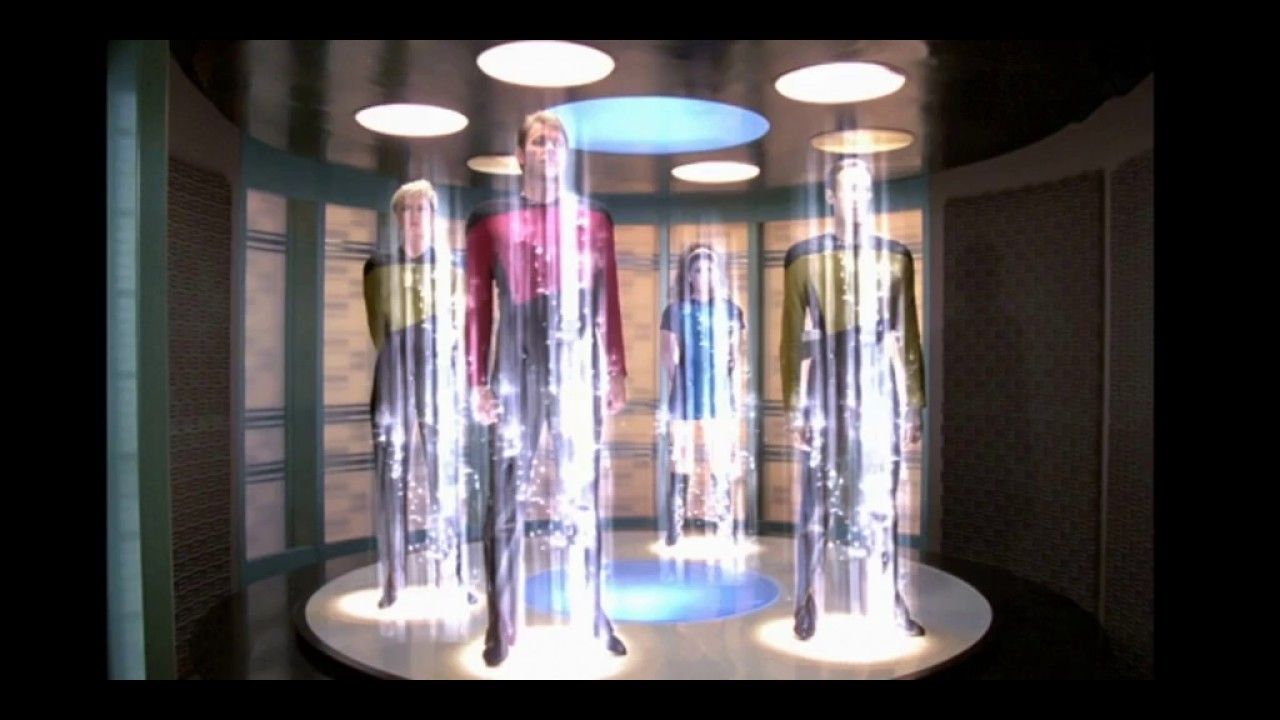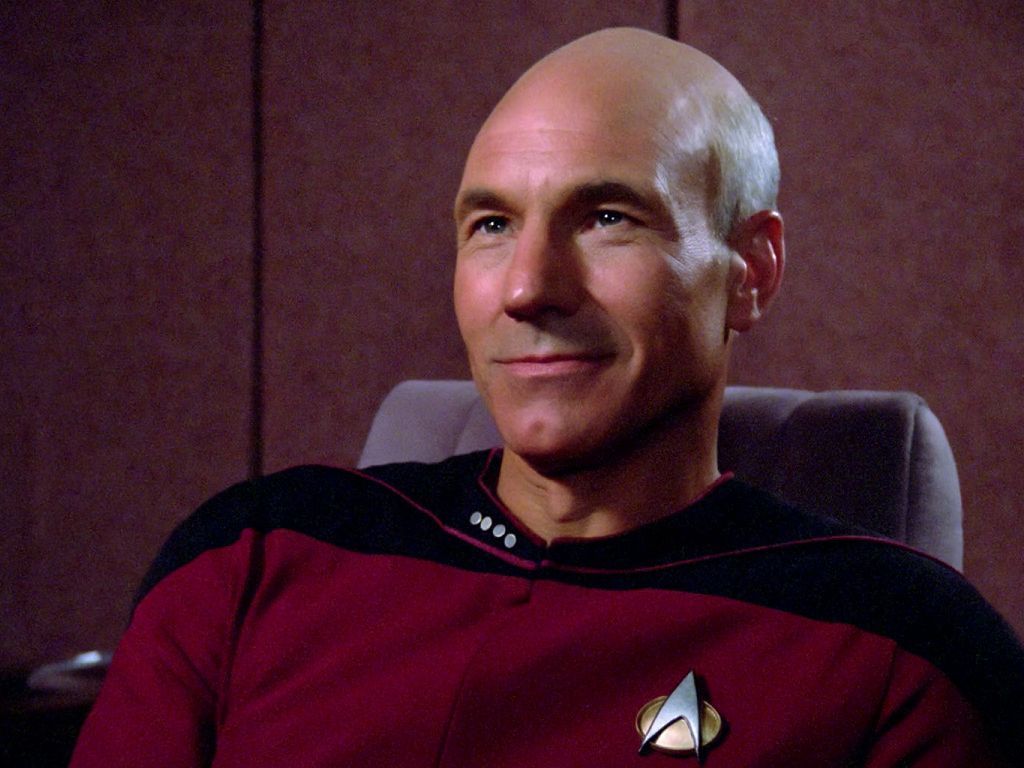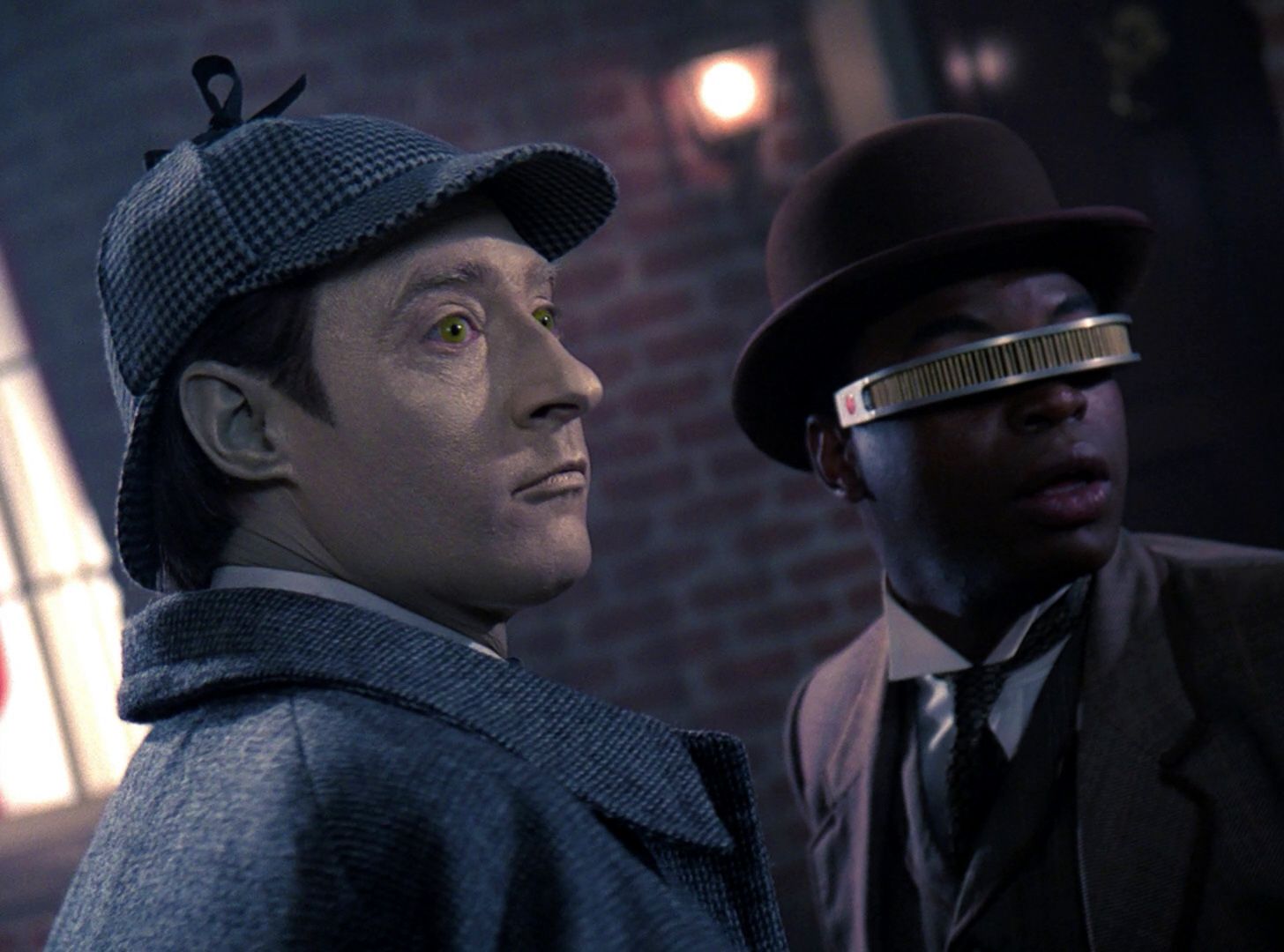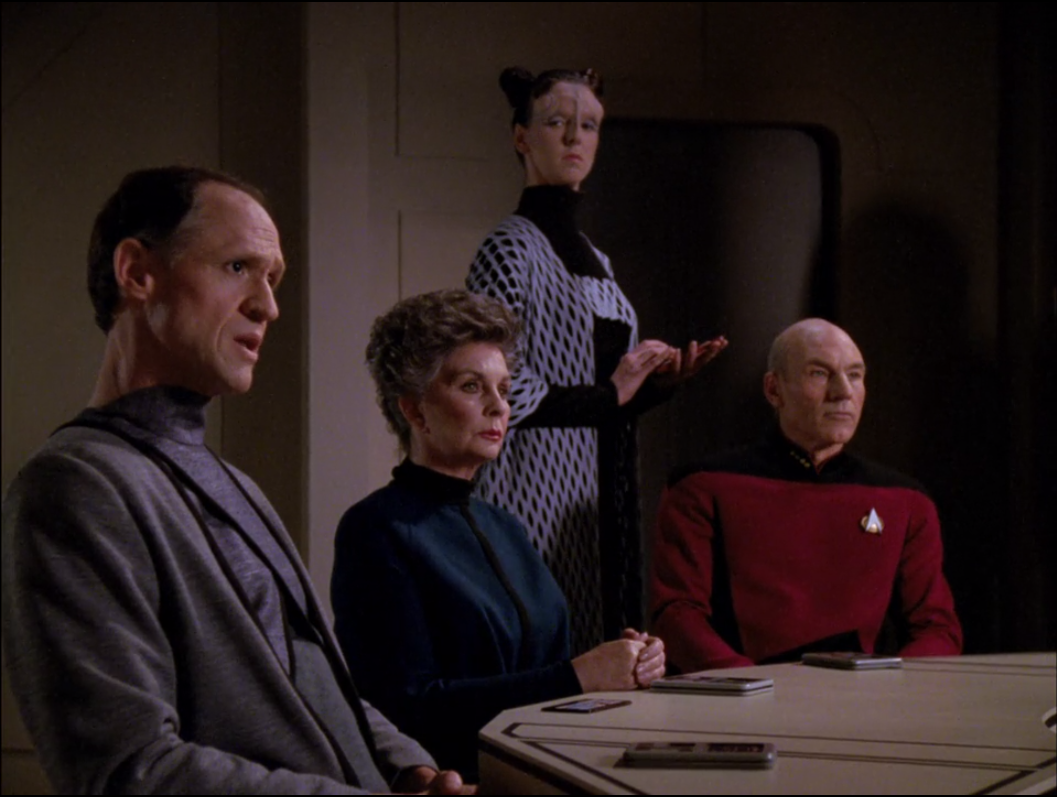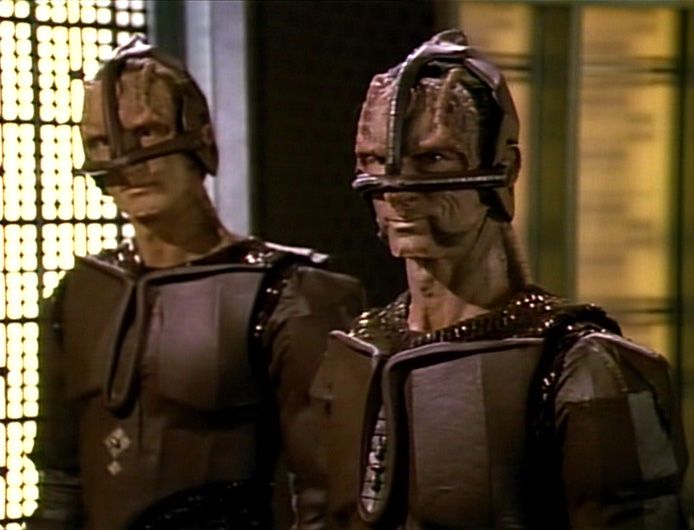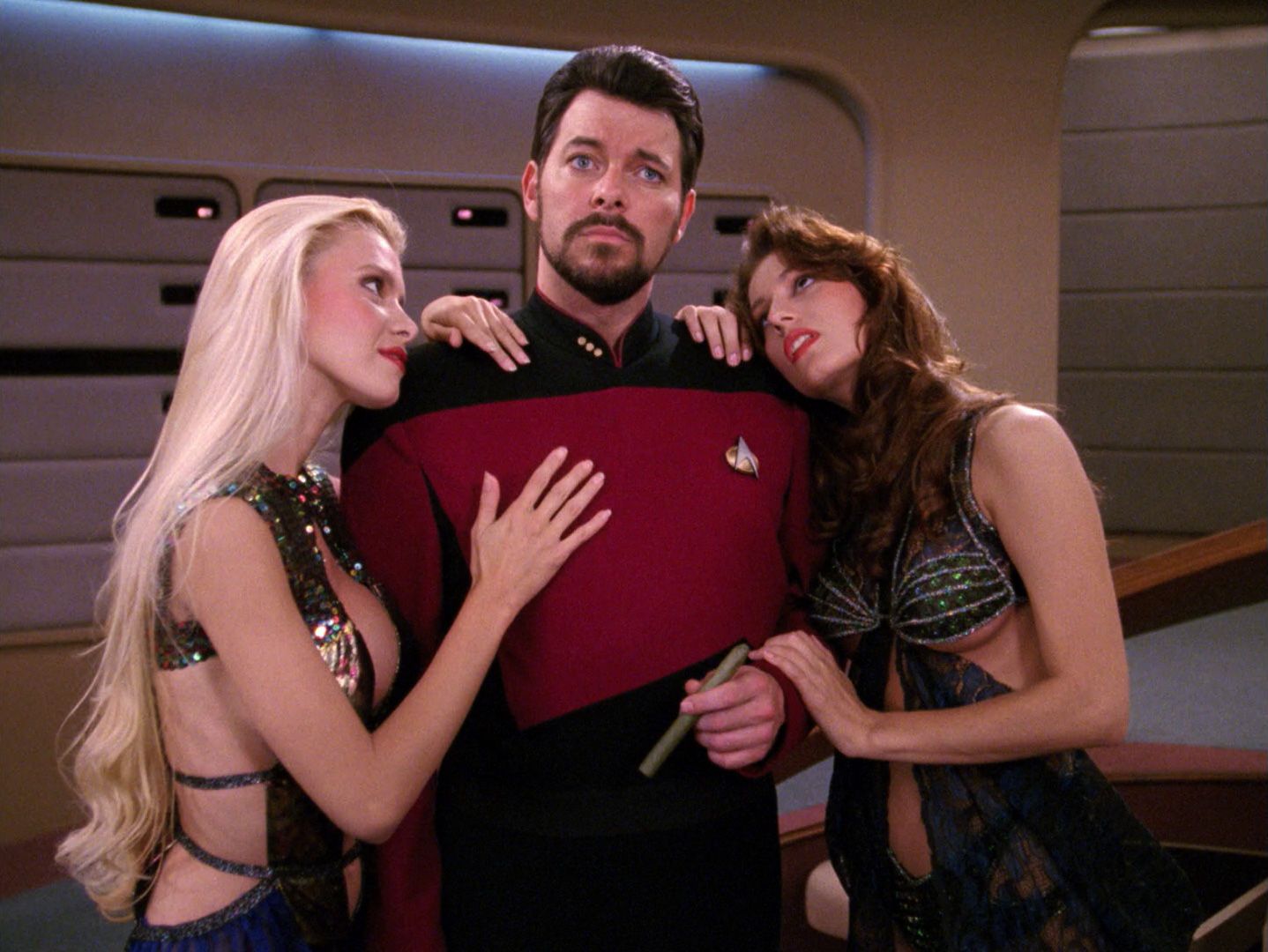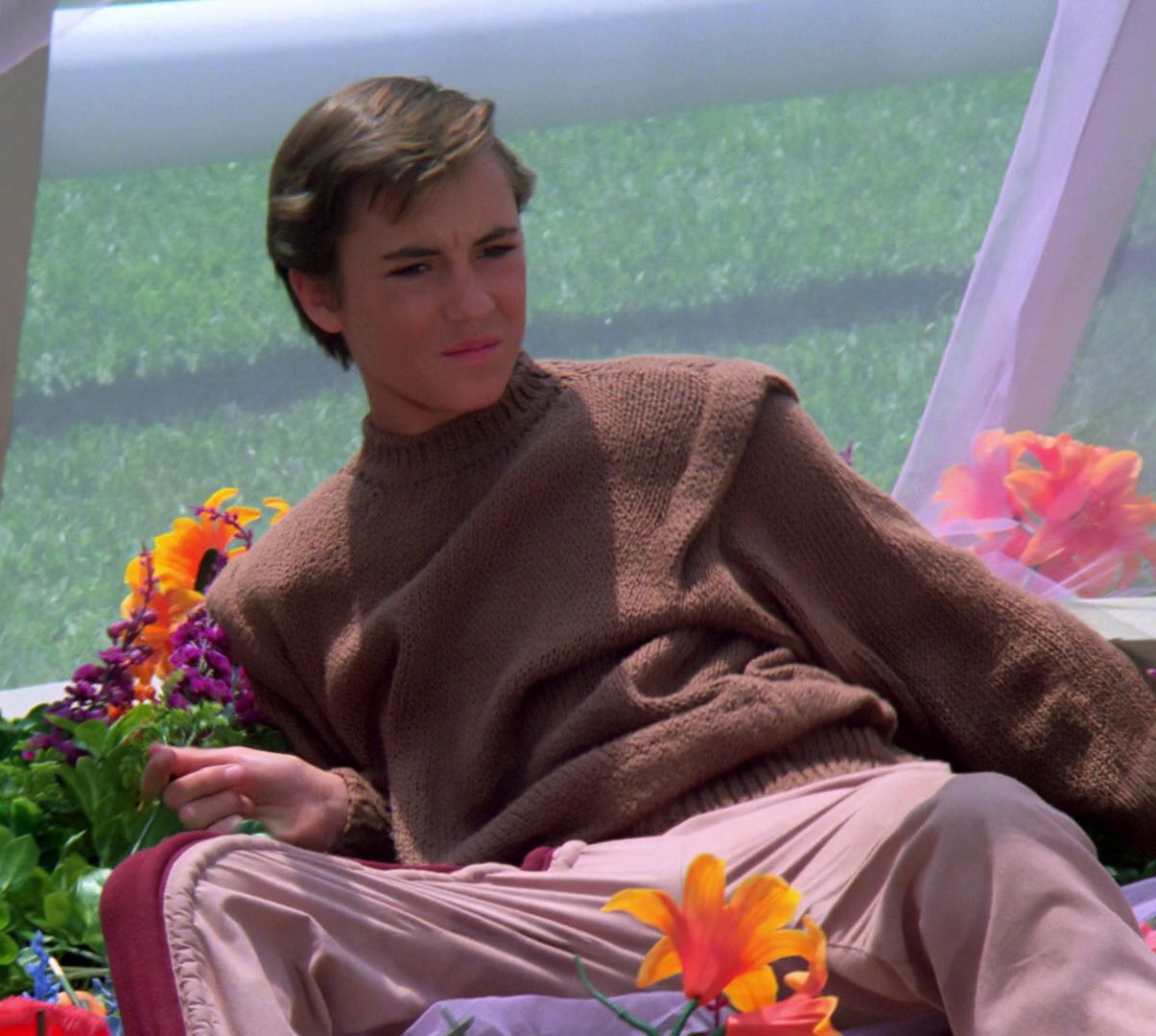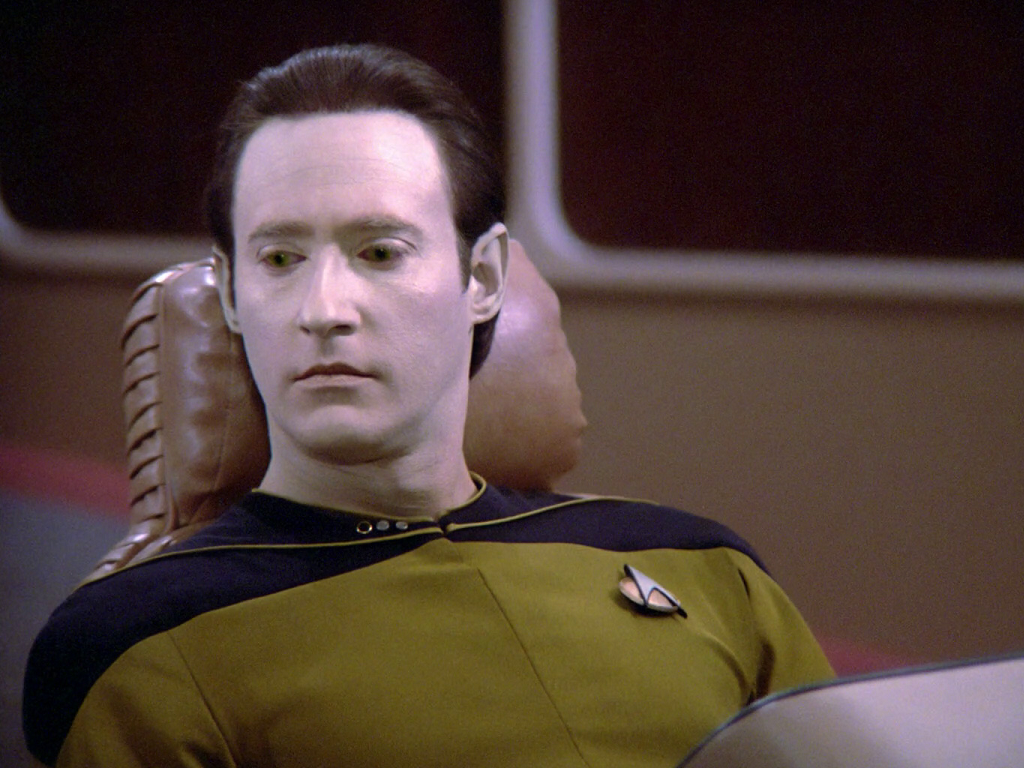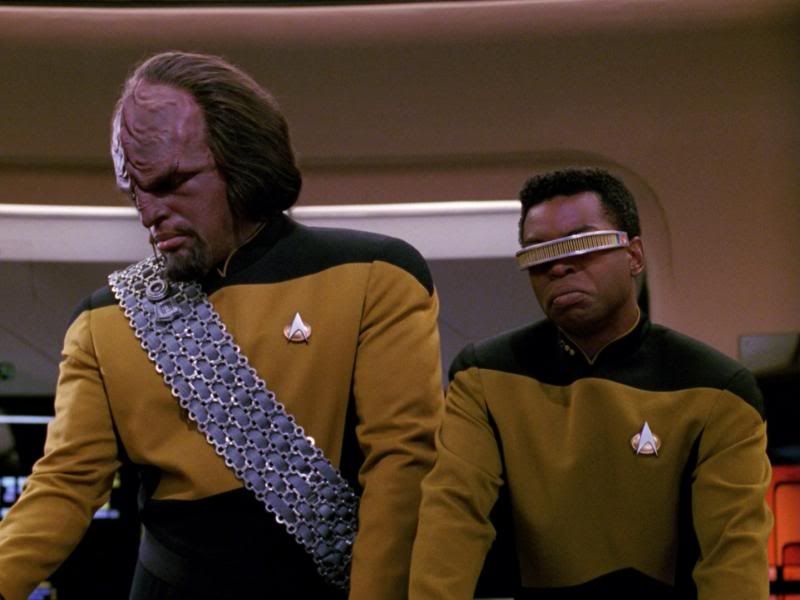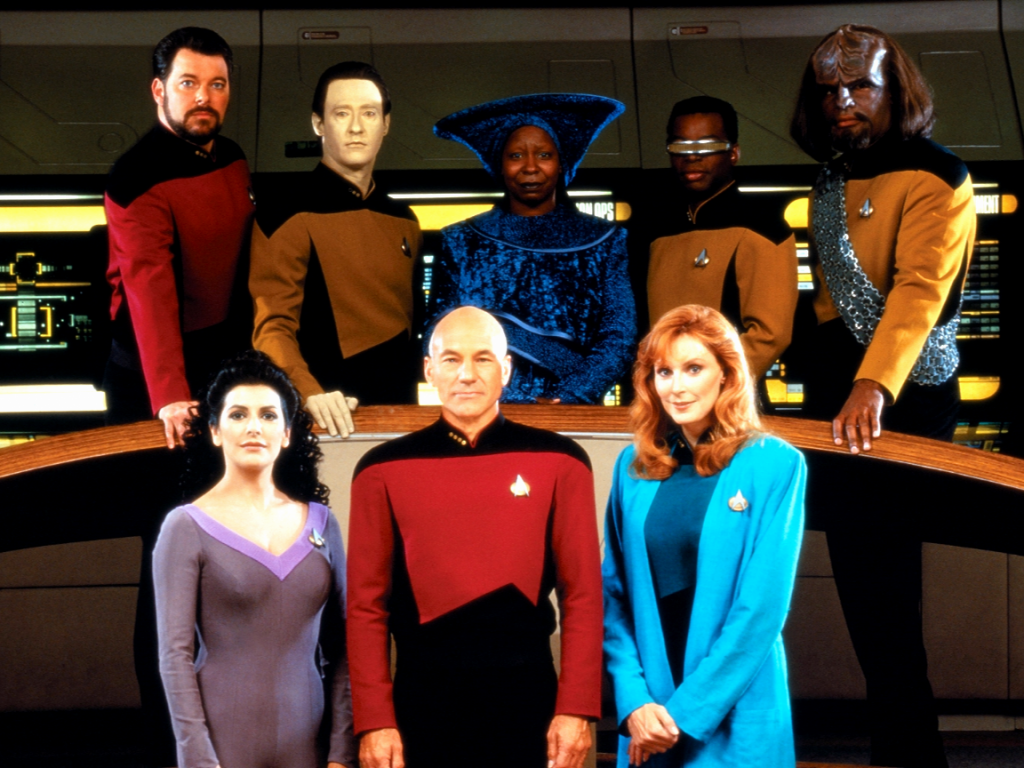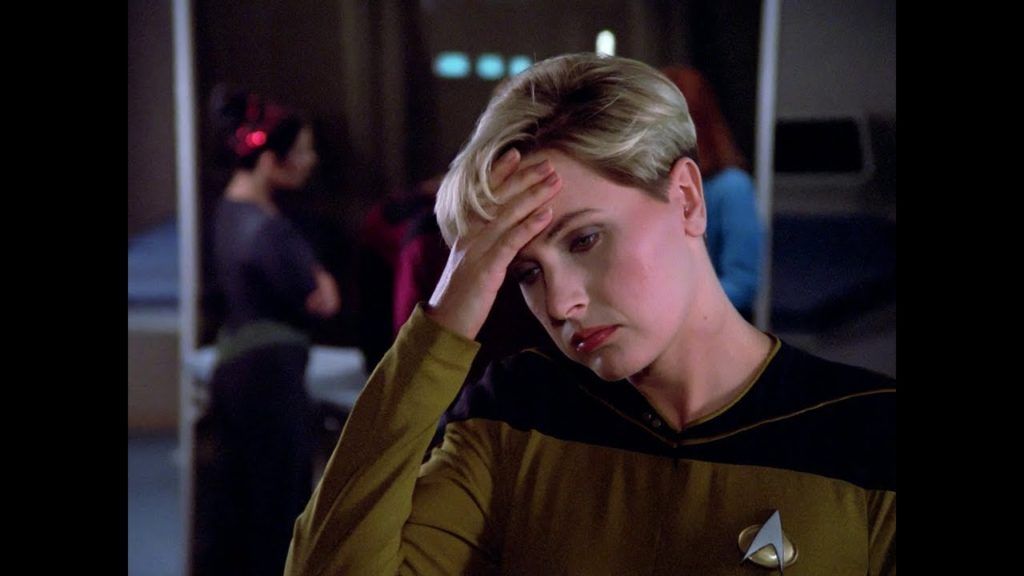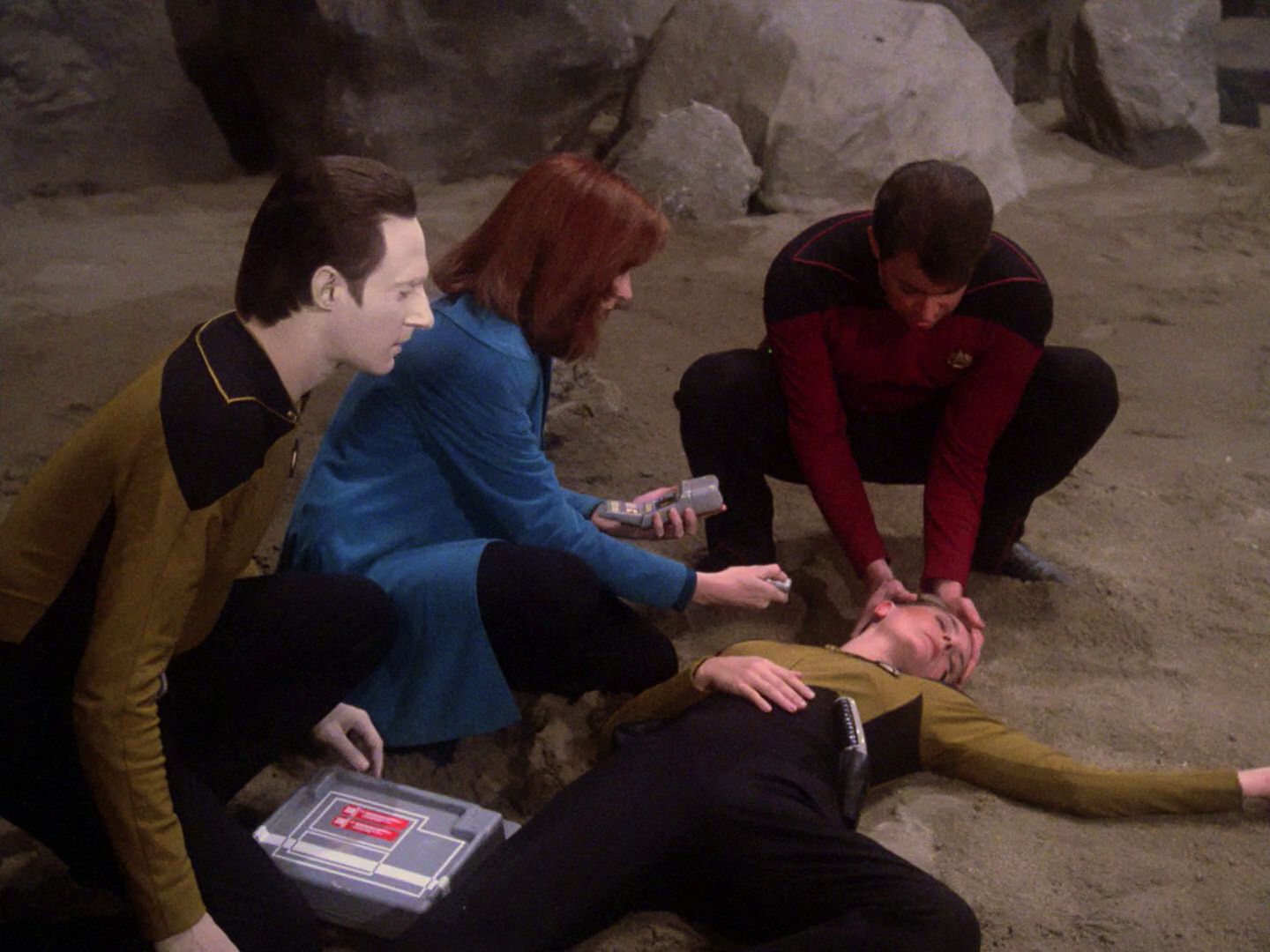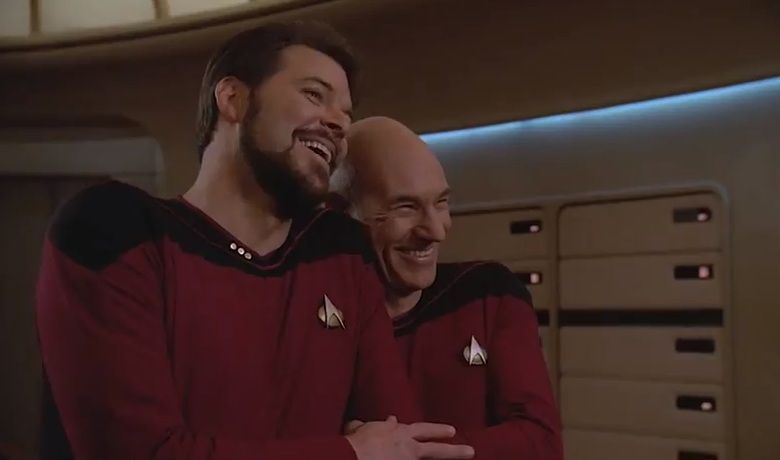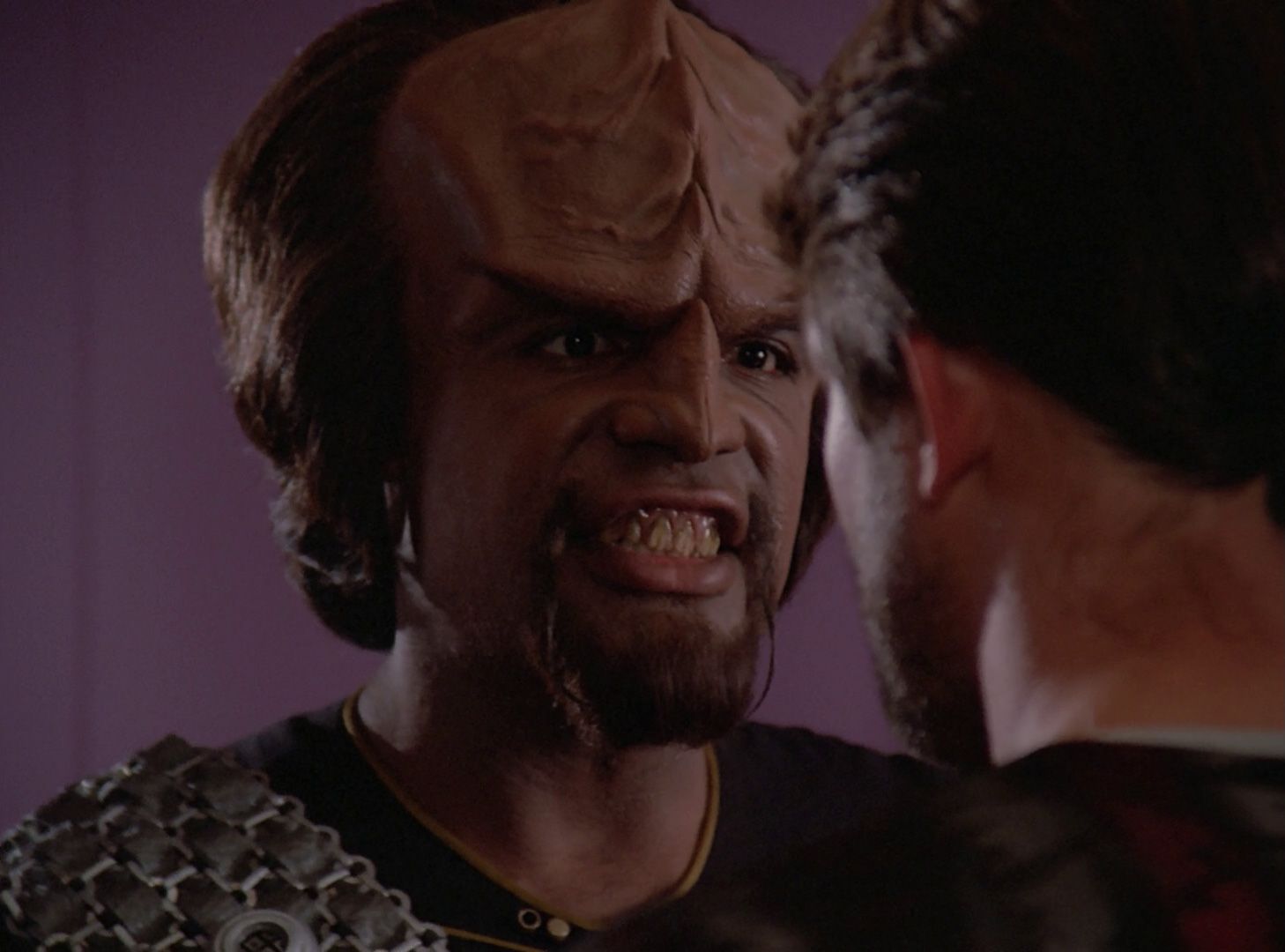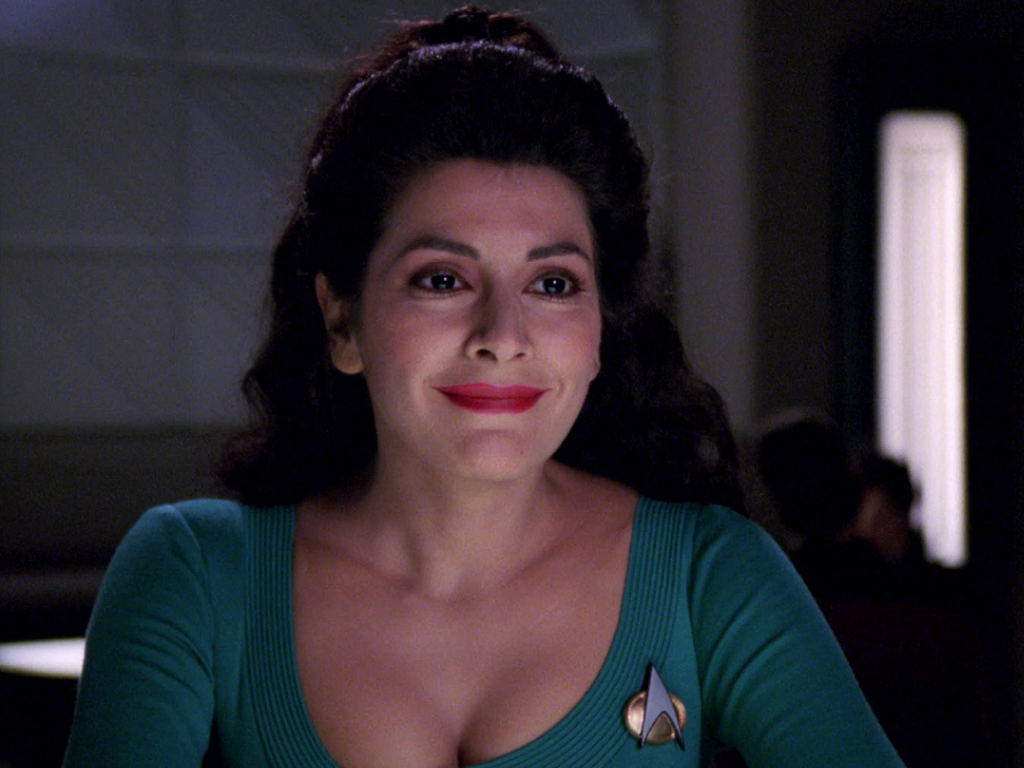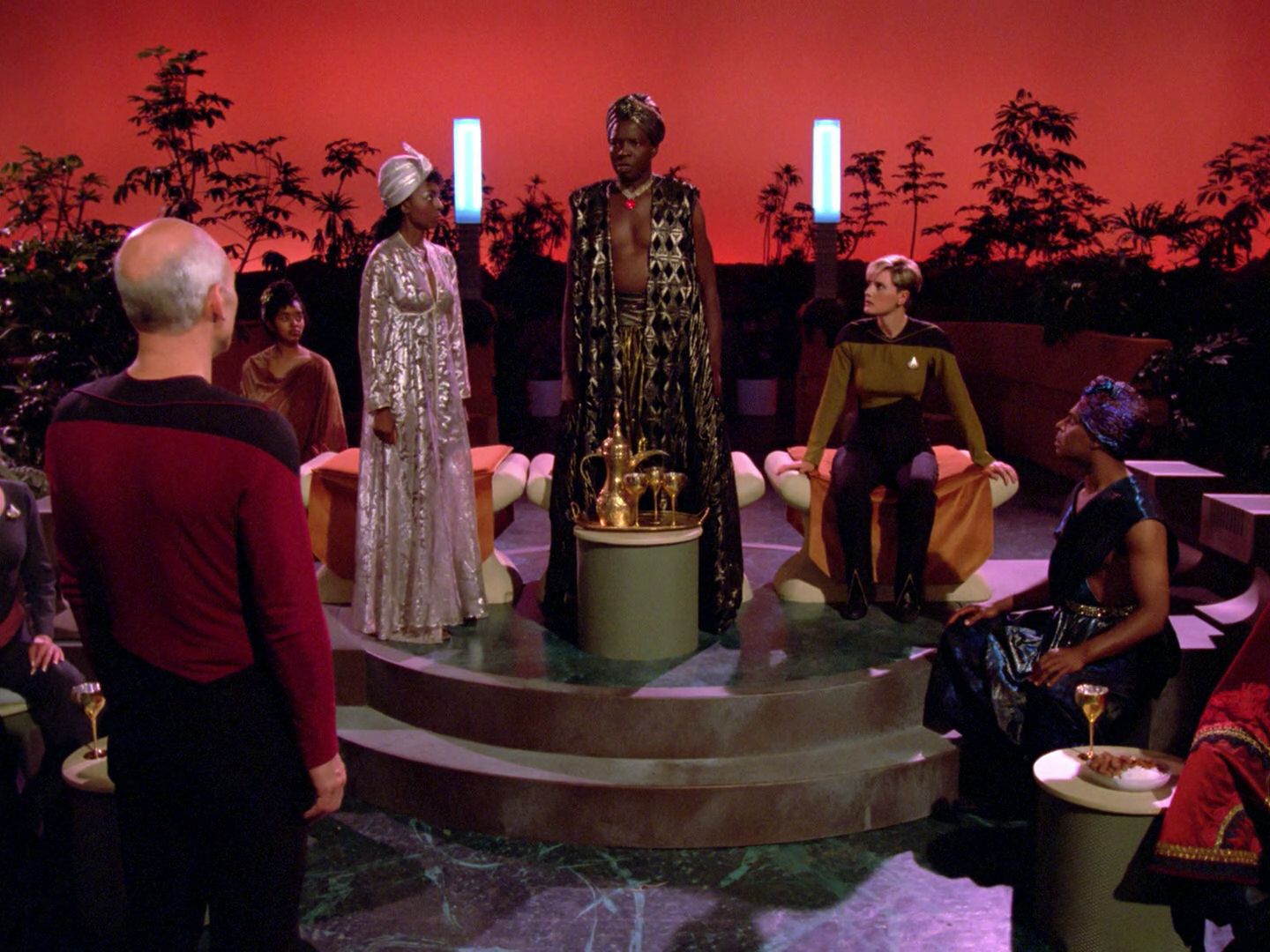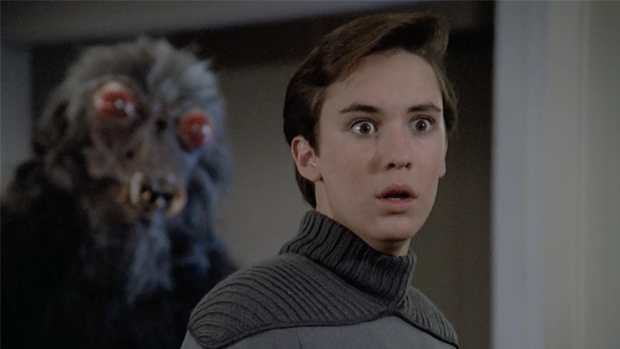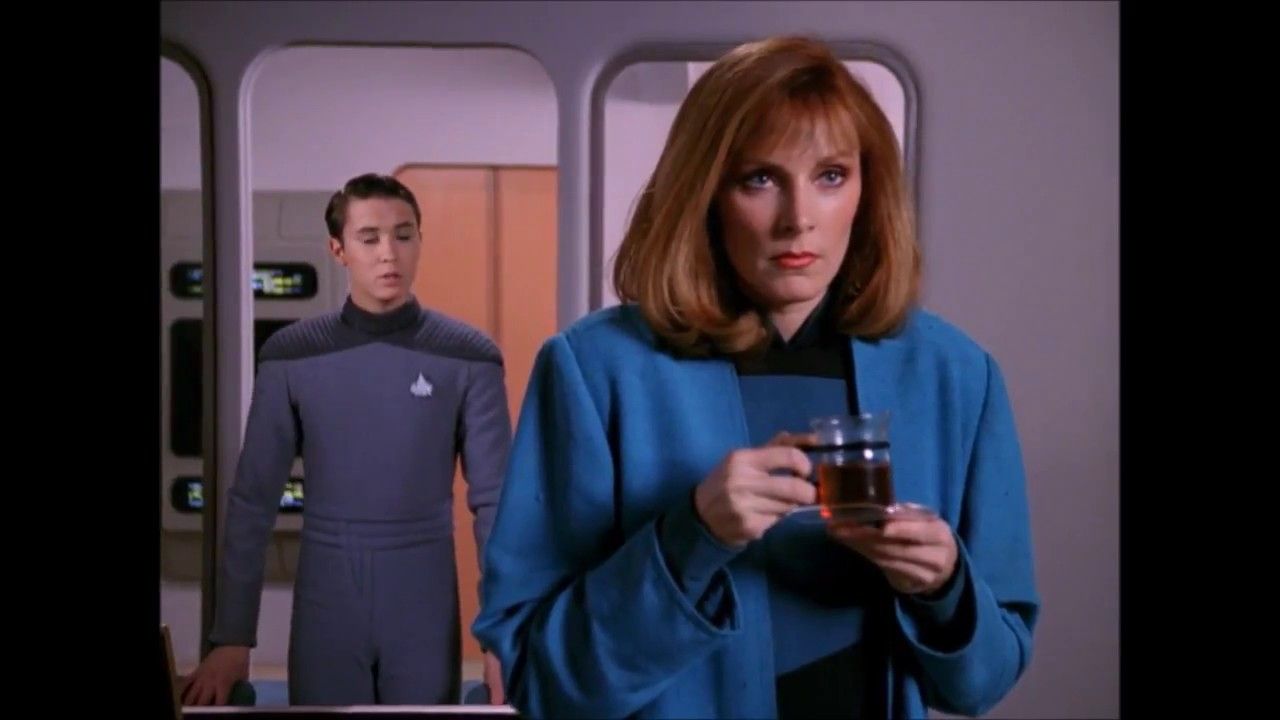Star Trek: The Next Generation commonly known as just TNG is regarded as one of the best renditions of Star Trek by many Trekkies. Not only did it become a staple in the Star Trek universe, it also paved the way for future productions like like Star Trek: Deep Space Nine and Star Trek: Voyager. The show isn't perfect and actually struggled immensely to establish itself. Actor Patrick Stewart believed the show might not even get a second season, given how awful some of the first few episodes were. Fans attribute TNG's ability to lock up a second season with a poor performance in season one largely thanks to Trek fandom. Without the Star Trek franchise behind the show, one can wonder if the show on its own merit would have got renewed for a second season.
Anyway, TNG is riddled with cliches, and even crossed the line a few times with episodes that were misogynistic and even racist. Star Trek fans have a uncanny characteristic about them, as they're optimists even if they don't want to admit it. For the most part Star Trek fans will often ignore things that are bad or don't make sense and focus on the positive aspects of a show or episode. The first season of TNG was a write off, and season two, while albeit better than the first wasn't leaps and bounds better. The show took awhile to come into its own, but when it did - it was more than just some of the best sci-fi at the time, it was just generally some of the best television in the late 80s and early 90s. With that in mind, here's a list of 20 things about TNG that make no sense but fans like us choose to ignore.
20 Counsellor Troi's Empath Abilities
Commander Deanna Troi is the ship's counsellor and aside from being the only counsellor on a ship of 1,000 people, she's also an empath. You wouldn't know it from first glance, but Troi is half-human, half-betazoid. Since she's only half-betazoid, her telepathic abilities aren't as developed as full betazoids which is obvious if you've seen a handful of episodes.
Troi was like a weather barometer, you didn't exactly know what was coming but you could kind of see which way the episode was going.
Often Picard would ask Troi if she sensed anything and her response more than not was that she was having a hard getting anything of substance. Sure, there was a couple of episodes that her abilities were useful, but the clear majority of episodes involved Troi figuring out the twist at the same time the other crew members did. Troi's character was a challenge for the writers according to Marina Sirtis, the actress who played her, as they struggled to include her in episodes as she would be able to tell when people were lying. Even though her abilities were hit or miss, we're glad the show kept her around for a second second as without her the show, there wouldn't be enough female representation.
19 Worf is TNG's Punching Bag
Worf is a Klingon who was adopted and raised by human parents. Not only is Worf a Starfleet officer, he's also a Klingon warrior. In TNG, the writers often wrote stories in which Worf would get beat down by an enemy species or possibly his own crew mates who were possessed by an alien entity. It makes some sense that if an alien species can beat up Worf then you'd assume they're powerful, but at the same time Worf took a ton of unnecessary beat downs - so much so it kind of affected his credibility as the resident tough guy.
What didn't help is that producers created a character that was supposedly unbeatable and then when he got beat down, not only by regular crew members but special guests that are never seen again, audiences started to question if Worf really was a great warrior. This messed with the characters ethos a bit and the case for Worf being a great warrior is less evident in TNG then it is in Deep Space Nine. In Deep Space Nine, during the episode "By Inferno's Light", Worf along with some other crew members are being held in a Dominion prison camp on an asteroid. Worf is forced to fight The Jem'Hadar who use Worf and General Martok as training practice. Worf ends up winning seven matches but is unable to defeat his eight opponent, leading a Jem'Hadar to surrender as he can eliminate Worf, but he can't beat him. If only TNG wrote more stories like this, Worf wouldn't like such a push over.
18 Transporters Are Played Off as Being Safe
In TNG, the show used several characters to reinforce the idea that transporters were safe and that people shouldn't be afraid of them. Most notably, Dr. Pulaski had a fear of them which was regarded as baseless, just like when people quote statistics about airplanes. Although, in the show, transporters are anything but predictable or safe. We're just saying that if you wanted to compare using a transporter to flying, then don't show us so many examples of everything that can go wrong with them.
Transporters might save you, they could clone you and they might even end you. It's a total crap shoot.
In season two, the transporter is used to heal Dr. Pulaski from a disease that is causing her to age rapidly. Because the transporter creates a digital imprint of a person's physical self at the time she beamed down to the surface, the crew are able to use it to undo the genetic disorder Pulaski picked up while on the planet by re-calibrating the transporter. The second most interesting thing that happened in TNG related to transporters is in the episode"Second Chances", as an accident occurs where Riker is cloned when evacuating a space station eight years prior. Long story short when Riker beamed off the station, the transporter created a clone of him and that clone ended up living alone for eight years. Eventually the Enterprise is sent to the planet to retrieve data from what they think is an abandoned research base and find Riker's exact copy. Turns out two Rikers is one too many for the Enterprise as "Tom" departs the ship at the end of the episode. Last we heard, he's doing hard time in a Cardassian penal colony.
17 Jean-Luc Picard is French, but the character has a British Accent
This one never made sense. The show obviously cast Patrick Stewart as the captain and star of The Next Generation. Stewart has a prominent British accent and it would have made sense to tweak Picard's backstory to make him British instead of French. In the episode "Family", audiences find out that Jean-Luc's brother runs their family's vineyard in France. Instead of giving Jean-Luc's brother a French accent, the show cast another British actor. In a few flashback scenes, Jean-Luc's father is also played by a British actor. This made us question the whole purpose of the French backstory.
Was the entire point of giving Picard a French lineage that he could one day wrestle with his brother in a grape field? vWe'll never know, and even though we can't imagine what sort of field him and his brother would wrestle in if he returned to his family's farm in Yorkshire, we found it hard to really believe Jean-Luc was French. Jean-Luc being French didn't add anything to the character or the show and thankfully Stewart is such a strong actor we just sort of accepted whatever we saw as reality and put it out of mind and out of sight.
16 No Mandatory Safety Features on Holodecks
Holodecks seem like fun places, as you can pretty much play out any scenario or fantasy you ever wanted. Virtual reality is a cool idea and a lot of people are hoping that one day instead of individuals wearing VR headsets they can step into a room, much like a holodeck and interact with the environment in a more natural sort of way. Holodecks use force-field and replicator technology to make it so individuals can interact with matter to move it or eat, for example. The only thing that keeps holodecks safe is the safety protocol, which seemed to malfunction quite a bit in TNG.
Why would they even allow members of the crew to turn off the safety features?
The holodeck episodes did allow for some creative content though and our favourite has to be the Sherlock Holmes episodes, which featured Data as Sherlock Holmes and Geordi as Watson. Geordi asks the computer to create a character that has the ability to confound Data and potentially beat him. Professor Moriarty is created who decides to hold individuals hostage and even manages to gain control of the Enterprise. Did we mention he's just a hologram?
15 Every Admiral Is Likely Insane or Evil
This never made sense to me, but every single admiral is either evil or insane. Watching TNG, when an admiral was on board, audiences were basically waiting for the plot twist where the admiral would do something crazy or evil to reveal their real motivations. This plot twist certainly worked once or twice, but this quality rubbed off on future productions like Deep Space Nine that kept the same tradition of crazy or evil. Theoretically, to become an admiral, it takes a great deal of time and effort but admirals seemed to throw away their careers faster than any rank in Starfleet, which was shocking but not always justified. Evil comes in many forms, and one such way is to "spread fear in the name of righteousness".
During the episode "The Drumhead", retired admiral Norah Satie is brought in to investigate a Romulan collaborator J'Dan, a Klingon exchange officer who has been secretly transmitting information to the Romulans. The name of the episode is used to refer to military courts that took place in history that were more or less a kangaroo court. Satie degrades herself in front of a court and begins a witch hunt that embarrasses her, but also a Star Trek crewman Simon Tarses who lies about his Romulan ancestry on his Starfleet application as to avoid discrimination.
14 The Cardasians Had a Serious Uniform Malfunction
The Cardassians appeared in the fourth season of TNG as a way of presenting Starfleet with a more complex adversary. This played perfectly into the story arc for TNG's successor Deep Space Nine. The Cardassians certainly provided a great opportunity for writers to develop compelling stories and show off Patrick Stewart's acting ability, specifically in the sixth and seventh season. "There are four lights!" If you don't get this reference then this might not be for you.
Anyway, the Cardassians originally appeared much different in season four of TNG then when they returned in season six. Their facial features were slightly different, but what was most noticeable was the uniforms the Cardassians wore. It's possible to mistake them for an entirely new race once they were re-introduced back into TNG. No one seemed to really acknowledge that the Cardassian uniform did a one-eighty as they stopped wearing jock-straps on their heads. We're glad their uniforms and dress got an update, but the change was so drastic and the time between episodes was so long that it was almost a waste to introduce them in season four and probably better to do it in season six. Keeping up with the Cardassians might seem a lot harder than one thinks.
13 Will Riker Is a Womanizer
If you look up the definition of womanizer, Will Riker isn't there, but he probably should be. Audiences often ignore commander Riker's promiscuity mainly because he's pretty charming and as far as womanizers go, he isn't deceptive nor does he mislead the women he gets with. He's actually pretty upfront about who he is and some audiences would argue that he shows a really interest in the women he often courts for forty-five minutes at a time.
We attribute Riker's 'abilities' to his beard, which came about in season two and upped his game 100%.
In season one, commandeer Riker looked way too babyface for our liking. According to actor Jonathan Frakes, the one thing that creator Gene Roddenberry didn't want Riker to do in season one was smile, which was one of his trademark moves throughout TNG. Riker would smile, move towards someone and straddle the chair next to them. Classic Riker move. Thankfully, Frakes was given more leeway in season two and was allowed to incorporate characteristics about himself into the character of commander Riker, including his ability to play the trombone. The only thing we're not sure of is whether the man makes the beard or if the beard makes the man.
12 The Prime Directive only Applies in Certain Situations
The Prime Directive is a directive of non interference that all Star Trek personnel have to follow to make sure they avoid interfering with other cultures and civilizations. It is a sort of philosophical concept that personnel will avoid getting involved in the natural development of societies and will refrain from assisting in that process. For example, if society does not have warp technology then it is not up to Starfleet to give said society that technology as it will rapidly advance and change that society.
The kicker is that even if such interference is well intended, it still has the potential to do a tremendous harm. There is a ton of examples in which the cast of TNG clearly took liberties on the Prime Directive, but none are so obvious as in the "Justice" episode where Wesley Crusher breaks some glass, harms a plant species and is sentenced to death by the Edo. Albeit, the punishment is ridiculous for the transgression, but the prime directive is pretty clear on this one. Wesley should have taken the sentence. Picard is left to weigh his options between Wesley's well being and the Prime Directive, and shocker, the crew ignores the Prime Directive and the episode ends in what was a painful forty-five minutes of television.
11 Data is Meant to Resemble a Human But Looks Nothing Like One
When actor Brent Spiner was cast to play Data, Paramount Studios brought him for several makeup tests. Gene Roddenberry wanted to make sure that when audiences saw Data, they knew instantly he wasn't human. This wasn't necessary as what makes Data an android is Spiner's acting and mannerisms, not the gold paint on his face. Having the actor pound makeup all over himself in an environment without any sort of natural air for what many actors and actresses have described as brutally long sixteen to eighteen hour days must have been awful. Actor Brent Spiner has been pretty modest in not blowing this out of proportion, as when asked about the makeup he plays it off as not that big of a deal.
The producers of the show had toyed with a few ideas for Data's skin tone, some notable options were bright pink and silver. Gold makeup sounds bad, but silver sounds a lot worse. Buddy Ebsen was hospitalized and his lungs collapsed during the filming of Wizard of Oz after having his face painted with a mixture including aluminium dust. Things could have been a lot worse for Spiner.
10 Geordi's Visor
TNG was revolutionary in giving a main character a disability as it allowed for the character to critique society in ways other actors couldn't. One of the best examples of this is in "The Masterpiece Society" where the Enterprise comes into contact with a colony of humans who are genetically engineered. The irony of the episode is that the technology needed to save the planet was in Geordi's visor, which the colonists would never would have had since if someone is conceived with a disability they are terminated as a way of "avoiding a life of suffering". Geordi rightfully critiques this opinion as he feels no one has a right to decided whether his life has value or not.
In season one, Geordi's visor seems to give the character tension pain, but it is seemingly never brought up again for the rest of the series.
This is a great example that sometimes the answers to our questions are not always in the places we look. That being said, it's the 24th century and Picard had an artificial heart put in his body when he was a young officer, so it wouldn't be a stretch to assume that Geordi could undergo an operation to fix his eyes, which we assume happens as the last episode of TNG throws viewers twenty-five years in the future and Geordi has received ocular implants. We love the inclusiveness of the character, we just think the logic behind the visor is kind of weak.
9 TNG Is Idealistic, Yet It Never Explains Itself
Good science fiction can explain itself. It sounds great that acquiring wealth is no longer what motivates humans to reach their potential, but TNG doesn't explain how their society actually functions. For example, do they really expect us to believe that someone would clean dishes or mop floors if they didn't have to? Sure, technology has likely replaced the majority of menial labour jobs with automation and technology, but in any society there will always be better jobs than others, regardless if there's a salary attached to them or not.
Earth is part of the United Federation of Planets and we assume that for every planet to benefit from the fruits of their socialism they have to support the federation. Resources are still important and some planets have them, and some don't. TNG has often been described as a post-scarcity society, which makes sense as there is such an abundance of products that they have become free or easily accessible. This makes sense, but who decides who owns land or property? And how does Starfleet determine who gets shore leave on TNG's pleasure planet "Risa" and who doesn't? TNG needed to explain to viewers how they incentivized workers to do jobs they likely didn't want to do.
8 Tasha Yar's Story Issues
Every TNG fans knows about the Enter'prise's Chief of Security Tasha Yar, who was taken out in the terrible episode "Skin of Evil early on in season one. So why exactly did actor Denise Crosby plan her exit so soon from Star Trek when she clearly loves the series? According to Crosby, Roddenberry wanted the show to have a similar format to the original Star Trek where the show would only feature episodes of the Captain, The First Officer and Data. Realizing her character development would be non-existent and she would only get the occasional line, she decided to part ways and look for greener pastures.
Crosby returned as Tasha Yar in episode Yesterday's Enterprise when the Enterprise passes through a temporal rift that causes the timeline to change resulting in Yar to be alive and Starfleet to be in a losing war against The Klingons. This storyline lead to Crosby playing Commander Sela, Tasha Yar's half Human and half Romulan daughter. Crosby originally pitched the idea of Tasha Yar having a daughter to producer Rick Berman who put the idea on the back burner, but eventually decided it was a good idea. We're glad she did, as "Yesterday's Enterprise" and "Unification" are two amazing TNG episodes.
7 Tasha Yar's Death Was a Joke
Season one of TNG was a minefield of bad episodes and it's really hard to pinpoint which episodes stood out as significantly worse than the rest, but the "Skin of Evil" ranks high among them. On an away mission to rescue Counsellor Troi from a shuttle-craft accident the team encounters Armus, an oily black alien that was created when the planet's indigenous beings learned how to remove all the evil inside of them. Actor Denise Crosby was unhappy with her character's development and wanted to be released early from her contract. The show agreed and her death was planned for this episode. Unfortunately instead of going out in a blaze of glory, Tasha's passing is remembered as giant failure. It was so anti-climatic that most viewers didn't even take it serious at first, but then came the awful monologue.
Right of the bat, the entire monologue seemed fake. It takes place on the holodeck and lasts for about six minutes. The fact that Tasha Yar left a recorded message for each member who attended the funeral is suspect. What makes the monologue pointless is that the creators invested almost no time in Tasha's storyline in season one and giving her five minutes of uninterpreted screen time was too little, too late. The sad fact is, we actually got more invested in the character post-mortem.
6 There's No Conflict Between Characters
This is a pretty obvious and widely talked about issue with TNG. Creator Gene Roddenberry had made it clear to writers that he did not want any storylines in which characters come into conflict with one another. This stifled character development as conflict is a necessary tool at building dynamic characters. Writers were caught between a rock and a hard place as they weren't allowed to mess with the show's equilibrium, but wanted to show that characters had depth. The solution was simple, but not all the ideal, as every single TNG character has family issues.
This is unfortunate and became predictable as every character's development rested largely on their interaction with their mothers, fathers or siblings. Picard and Riker hated their fathers, Data didn't know his father and everyone thought Troi's mother was overbearing. Not all family interactions were awful, Worf's family background was a highlight of not only TNG but also DS9, and Picard's interaction with his estranged brother humanized the captain in a way no other episode up until that point had. Using family as as a way of creating dynamic characters isn't the worst thing to do, it's just the amount of times TNG resorted to it was the problem.
5 Worf's Character Was Useless in Season One
So, TNG had two main actors who are black, one of them is Geordi and the other is Worf. Besides the poor representation, their positions were both lieutenant junior grade in season one and, even though they got higher as the show progressed, TNG started both characters at as close to the bottom as they could. Worf began season one as a tactical officer and every time he gave his input to either Picard or Riker, they shut him down. Worf, according to actor Michael Dorn is one of the coolest characters in Star Trek and we completely agree. Roddenberry apparently gave Dorn some leeway with the character's development and Dorn thankfully created the complex surly character we've come to love.
You could probably make a game out of all the times Worf is shutdown in TNG.
After season one and following Tasha Yar's death, Worf became the Enterprise's Acting Chief of Security, which at least made his role on the ship less ambiguous. A lot of fans have openly asked what was the point of Worf in season one, other than to play a token Klingon. We're not sure the show knew what to do with him either. We still think Worf made the right call in joining Deep Space Nine as this gave the actor and character a platform he previously didn't have on TNG.
4 Deanna Troi's Outfits Weren't Great
Actor Marina Sirtis, who played Counsellor Deanna Troi, has openly said that after she was finally allowed to cover her chest and wear a standard Star Trek uniform, her character became instantly intelligent. According to Sirtis, "when you have cleavage you can't have brains in Hollywood." The uniform liberated Troi's character and allowed us to see her do things she previously never did, like use a phaser. The only sad part of this is that it took six seasons for this to happen. Other female characters, such as Dr. Crusher and Tasha Yar wore standard uniforms, so it didn't make a lot of sense that Troi didn't. Troi's uniforms never made sense, and the justification that it's easier for her to connect with her patients in civilian clothes is weak.
Her lack of regulation uniform came to a head in season six when Captain Jelico took temporary command of the Enterprise and ordered Troi to wear a proper uniform. Even though, Jelico comes across as a bit of a jerk, he actually allowed audiences to see Troi in proper uniform and subsequently the character and actor decided to keep wearing it.
3 Code of Honour isn't great either
This episode is not only outright racist, it's also bad science fiction. The episode focused on a primitive race of humanoids called the Ligonians who kidnap Tasha Yar after the Enterprise crew make contact with them to get a vaccine needed to help a nearby civilization. The reason for the kidnap was kind of confusing as the leader of the Ligonian's took Yar to in an act of "herorism". Unfortunately, the big issue with this episode is that the production team decided to cast the Ligonians with all black actors who are dressed in African garb. It doesn't help that the Ligonians are portrayed as exotic and tribal. The director who cast The Ligonians was fired half way through production by Gene Roddenberry for allowing the show to be accused of racism.
The backlash came and it really hasn't left. This episode is widely discussed among many Trek fans as not only a low point in TNG's history, but also a low point in Star Trek in general. The sad fact is that this episode is full of cliches and a lacklustre storyline.
2 Acting Ensign Wesley Crusher
This might be a contentious pick, but Wesley Crusher’s character seemed to appeal to younger audiences and annoyed a clear majority of Trek fans. Actor Will Wheaton can be hilarious on Twitter and overall, we don't hate Wheaton, we just hated Wesley Crusher. Crusher was given tremendous power over operating the Enterprise, more so then would seem appropriate for a fifteen-year-old acting ensign. We wish that when Dr. Crusher departed the show in season two, she would have taken Wesley with her.
It probably sucked being on a ship full of adults, but Crusher’s know-it-all personality and ability to take things way too seriously made him an awkward, unlikable character. The writing didn’t help, given that more than one episode seemed to be based on Crusher’s ability to solve a problem a ship full of Starfleet’s best couldn’t. We got the idea, as kids aren’t dumb and can contribute too. Star Trek: The Next Generation really beat this one into the ground. Wheaton's character Wesley Crusher presence was heavily linked to Gene Roddenberry’s involvement, which lessened over time as Roddenberry took a backseat to the production. Wesley Crusher’s character became more a character on the side and then eventually he was gone, and the show was better because of it.
1 Replacing Dr. Crusher with Dr. Pulaski
At the end of season two, Gates McFadden, who played Dr. Crusher, did not have her contract renewed. McFadden took issue with a few episodes that she saw as being blatantly misogynistic and racist, which led to a poor working relationship with writer and producer Maurice Hurley. She was replaced with the sour mouthed, android hating Dr. Pulaski. Apparently executive producer Rick Berman didn’t support this decision and thus Dr. Crusher’s character wasn’t killed off, which left the door open for her possible return. According to McFadden, Hurley eventually gave the show an ultimatum that it was either him or her, and the show picked Hurley over McFadden.
Dr. Pulaski’s character was supposed to be a nod to Dr. McCoy’s in the original Star Trek, as he challenged to accept and understand Vulcan culture and often clashed with Spock. Show writers had hope to create a similar situation with Dr. Pulaski and Data, but instead of creating a healthy controversy, she just came across as overly mean. It didn't help that Pulaski didn't mesh with any of the other characters either. After season two, McFadden received a phone call from fellow actor Patrick Stewart who tried to persuade her to come back to the show for season three. Thankfully, McFadden accepted the offer and rejoined the cast in season three and became a staple character until TNG’s conclusion in season seven.

